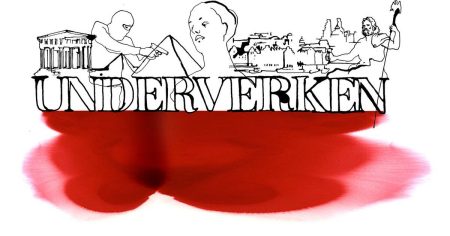Matilda Djerf, influencer and entrepreneur, built her brand, Djerf Avenue, on the bedrock of diversity. Eschewing traditional marketing, Djerf Avenue employed ”ordinary” people of diverse sizes and ethnicities as models, a strategy that proved remarkably successful. The brand, known for its oversized polyester blazers and other minimalist pieces, generated hundreds of millions in revenue and commanded long queues at pop-up stores in fashionable districts of Stockholm, New York, and London. Customers flocked not just for the clothing, but also for a glimpse of the star behind the brand, Matilda Djerf herself. This approach, rejecting the narrow beauty standards of the traditional fashion world and visually presenting alternatives, effectively broadened the brand’s target audience. Young women, coming in a multitude of shapes and sizes, found it refreshing to see models they could readily identify with, a stark contrast to the predominantly thin models employed by fast-fashion giants like H&M and Zara. Djerf Avenue’s embrace of diversity resonated deeply, and the brand became synonymous with values perceived as modern, socially aware, and, importantly, sympathetic. However, this carefully constructed image of inclusivity and body positivity would soon be challenged.
An investigation by Aftonbladet newspaper painted a starkly different picture of the company’s internal workings. Eleven former and current employees, speaking anonymously, alleged a toxic work environment rife with bullying, exclusion, and a distinct hierarchy of favoritism. Some employees claimed they weren’t even acknowledged by Djerf herself. One former employee described the atmosphere as ”daily psychological terror.” The allegations extended beyond problematic working conditions and a potentially dysfunctional corporate culture; they directly contradicted the brand’s publicly espoused values. Employees claimed that Djerf had made disparaging remarks about employees’ bodies and had demanded reshoots of a plus-size model, reportedly commenting that the model looked ”so damn fat” in the clothes. This revelation starkly contrasted with the brand’s body-positive image and sparked widespread discussion about the authenticity of Djerf Avenue’s values. The accusations cast a long shadow over the company and threatened to unravel the carefully crafted image of its founder.
The allegations against Djerf Avenue and its founder raised serious questions about the gap between the brand’s projected image and its internal reality. The company’s website described Djerf Avenue as a world ”filled with kindness, inspiration, respect, and the perfect basics,” but the employee testimonies suggested a disconnect between these ideals and the lived experiences within the company. This discrepancy struck at the heart of the brand’s identity, particularly given its target demographic’s sensitivity to authenticity and ethical practices. For a brand built on the foundation of inclusivity and body positivity, the accusations of body shaming and a toxic work environment were particularly damaging. The allegations undermined the very values that had propelled the brand’s success and resonated with its customer base. The brand’s future hinged on how it would address these allegations and rebuild trust with its customers and the public.
Matilda Djerf responded to the Aftonbladet exposé with a statement expressing regret and apologizing to any employee who felt mistreated due to her actions. She also outlined measures to improve the company culture. However, on her Instagram account, followed by over three million people, the investigation remained unaddressed. This silence contrasted sharply with the vocal outrage expressed by her followers, who voiced their disappointment and questioned her character. Comments like ”I thought you were nice?” reflected the sense of betrayal felt by those who had embraced the brand and its values. Djerf’s silence on social media could be interpreted as a strategic decision to avoid further inflaming the situation, recognizing that any public statement might be perceived as inadequate or insincere.
The Djerf Avenue scandal highlighted the precarious nature of influencer-driven brands. An influencer’s capital rests on their perceived authenticity and relatability. Followers invest emotionally in the influencer’s persona, often viewing them as a friend or role model. This parasocial relationship is crucial for driving engagement and brand loyalty. However, when an influencer’s actions contradict their carefully curated image, the consequences can be severe. The allegations against Djerf shattered the illusion of friendship and undermined the trust that underpinned her brand’s success. The public outcry underscored the importance of aligning personal conduct with brand values, particularly for influencers whose personal brand is inextricably intertwined with their business ventures.
The Djerf Avenue case serves as a cautionary tale about the potential pitfalls of building a brand solely on the personality of an influencer. While influencer marketing can be a powerful tool for connecting with audiences and building brand loyalty, it also carries inherent risks. The influencer’s personal life and behavior become subject to public scrutiny, and any inconsistencies between their projected image and their actions can severely damage the brand. The situation facing Djerf Avenue highlighted the importance of establishing strong company values and a positive internal culture, independent of the influencer’s personal brand. Long-term success requires more than a charismatic figurehead; it demands ethical business practices, a supportive work environment, and a genuine commitment to the values the brand espouses.














